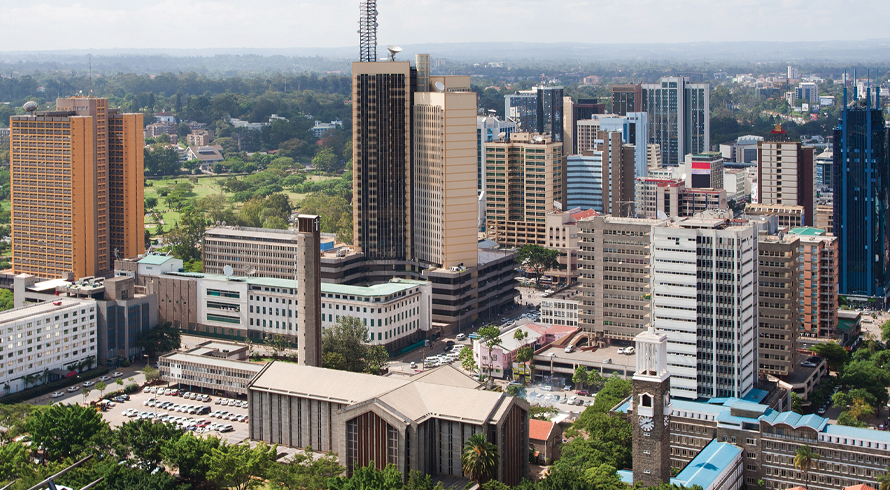Alleging a ‘continuing wrong’ to obfuscate the timeframes in section 198D of the Labour Relations Act: The LAC has its say
At a glance
- The Labour Appeal Court (LAC) ruled on a case involving Unilever South Africa and its employees regarding the interpretation of section 198D of the Labour Relations Act.
- The dispute centered around the employees' claim to be permanent employees after their fixed-term contracts expired and their refusal to sign further fixed-term contracts offered by Unilever.
- The LAC upheld the Labour Court's decision to set aside the arbitration award, stating that the dispute had arisen before April 2017 and did not qualify as a "continuing wrong," and therefore, the referral was late. The court emphasized the importance of adhering to the timeframes for referring a dispute.
The crux of the matter revolves around an interpretation of section 198D of the Labour Relations Act 66 of 1995 (LRA), which requires a dispute arising from section 198B of the LRA to be referred to the Commission for Conciliation, Mediation and Arbitration (CCMA) within six months of the dispute arising. The “dispute” in this instance stemmed from the appellant employees' contention that they were permanent employees of Unilever, allegedly employed on an indefinite basis from April 2017 after their fixed-term contracts ended. Unilever had offered them further fixed-term contracts which they refused to sign. Despite this, they continued performing services as per their expired fixed-term contracts.
The arbitrator's decision
On 6 September 2018, the CCMA found that the appellant employees were deemed to be employees of Unilever since April 2017. Consequently, Unilever was deemed to have breached the provisions of section 198B(3) of the LRA. Unilever was directed to assist the appellant employees with participation in the company's medical aid, pension, education and home loan schemes, and to pay them at rates not less favourable than those paid to Unilever's permanent employees, with effect from April 2017.
Unsurprisingly, Unilever approached the Labour Court (LC) to review and set aside the arbitration award. It raised the following jurisdictional points:
- Whether the arbitrator had the jurisdiction to arbitrate the dispute in light of the dispute having been referred more than six months after the dispute arose (without an accompanying condonation application).
- Whether the arbitrator had the power or jurisdiction to make such an award given that the appellant employees only sought a declaratory award, declaring them permanent employees as envisioned in section 198B of the LRA.
In response, the appellant employees contended that, while the dispute may have arisen in April 2017, the dispute was a "continuing wrong (akin to an unfair labour practice)". Accordingly, the referral was not late and there was no need to apply for condonation.
The LC's decision and subsequent LAC appeal
Olivier AJ presided over the review application before the Labour Court. The court accepted that the dispute arose in April 2017. In relation to whether it was a "continuing wrong", the judge was of the view that:
"[T]he very nature of the disputes contemplated in sections 198A, 198B and 198C is that 'they recur on a monthly basis, for example, less favourable monthly remuneration or benefits'; and that there would be no purpose to the time limit prescribed in section 198D(3) of the LRA if all such disputes were considered as a 'continuing wrong'."
In support of the above, Olivier AJ referred to the cases of SABC v CCMA and Others [2010] 3 BLLR 251 (LAC) and Eskom Holdings SOC Ltd v NUM obo Kyaya and Others [2017] 8 BLLR (LC).
In deciding the second jurisdictional question, Olivier AJ concluded that there was no evidence to support the findings of the arbitrator and thus set aside the award.
On appeal to the LAC, the parties relied on the same arguments, varied slightly by the appellant employees who contended that although the dispute arose in April 2017, the "wrong" occurred on the date of commencement of employment of each of the individual appellant employees and continued daily until the dispute arose on 12 April 2018. Therefore, the dispute was referred timeously.
The LAC found that the "act or omission" referred to in section 198D(3) of the LRA is clearly that which gave rise to the dispute. As long as it is the same "act or omission", a dispute can only have one initial date on which it arose. According to the LAC:
"[t]he only period relative to the facts of this matter, when Unilever could conceptually have been in contravention of section 198B, is when the fixed-term contracts were in place and were to be renewed, and that period, we know is the period preceding April 2017. Thus the 'act or omission concerned', being an alleged failure by Unilever to comply with section 198B, could only have occurred before, or in, April 2017."
As long as no fixed-term contracts were in place, the act or omission concerned could not have recurred or be "ongoing". The LAC concurred with the findings of Olivier AJ in the LC and dismissed the appeal. It then held that it was unnecessary to comment on the veracity of the second jurisdictional point raised by Unilever as it was moot.
Conclusion
This decision provides a comprehensive explanation as to what constitutes a continued wrong in the context of the timeframes afforded to an aggrieved party in terms of section 198D. The case reiterates the importance of complying with the allocated timeframes within which to refer a dispute. Failure to do so could, as in this instance, obfuscate an otherwise promising case.
The information and material published on this website is provided for general purposes only and does not constitute legal advice. We make every effort to ensure that the content is updated regularly and to offer the most current and accurate information. Please consult one of our lawyers on any specific legal problem or matter. We accept no responsibility for any loss or damage, whether direct or consequential, which may arise from reliance on the information contained in these pages. Please refer to our full terms and conditions. Copyright © 2026 Cliffe Dekker Hofmeyr. All rights reserved. For permission to reproduce an article or publication, please contact us cliffedekkerhofmeyr@cdhlegal.com.
Subscribe
We support our clients’ strategic and operational needs by offering innovative, integrated and high quality thought leadership. To stay up to date on the latest legal developments that may potentially impact your business, subscribe to our alerts, seminar and webinar invitations.
Subscribe




